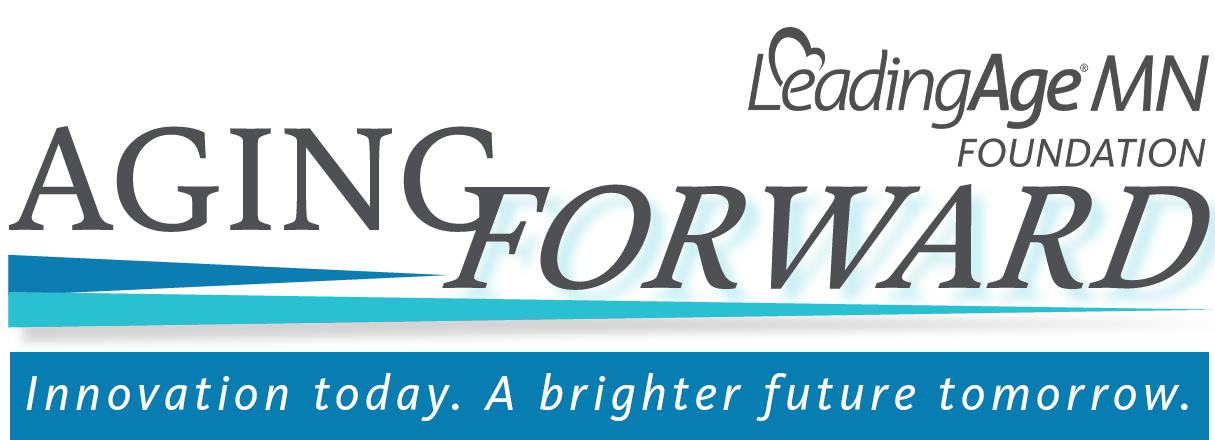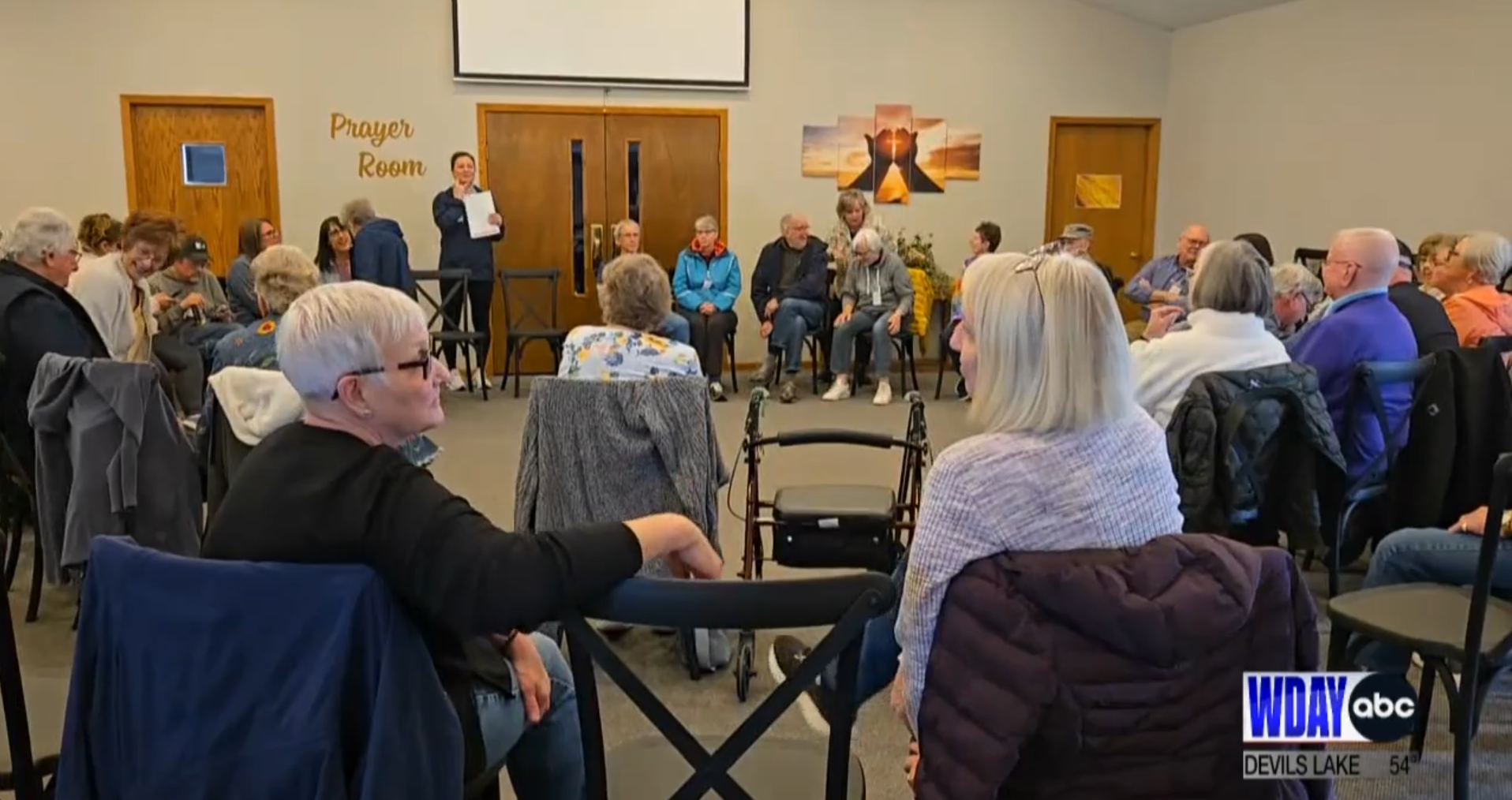Aug. 2025
Featured News
Fueling Dreams, Transforming Care: LAMN Foundation Invests $55,000 to Fund Caregiver Scholarships
On August 12, 2025 by Ben Hansen
Every day, caregivers across Minnesota bring comfort, dignity, and compassion to older adults. Many dream of advancing their skills, earning a degree, or stepping into leadership—yet the cost of education can put those dreams out of reach.
The LeadingAge Minnesota Foundation changes that. Through our annual scholarship program, we remove financial barriers and open pathways to brighter futures—for caregivers, their families, and the older adults they serve.
The 2025 Scholarship Program
This year, we’re investing $55,000 in the next generation of aging services professionals. Thanks to the generosity of our donors, this marks a 41% increase in scholarship funding available compared to 2024. Scholarships up to $2,500 help cover tuition costs—empowering recipients to grow, lead, and innovate in their careers.
Below, we’re highlighting four of our 23 deserving scholarship recipients to demonstrate the real-world impact of this program.
Karen Mitchell
Having worked as the LPN Manager at Frazee and Vergas Assisted Living, Karen Mitchell is heading back to school to pursue a Nursing Degree so that she can become an RN. Karen has been a Licensed Practical Nurse for 31 years. In addition to her current work in Assisted Living, she has worked in home care, hospice, and long-term care settings.
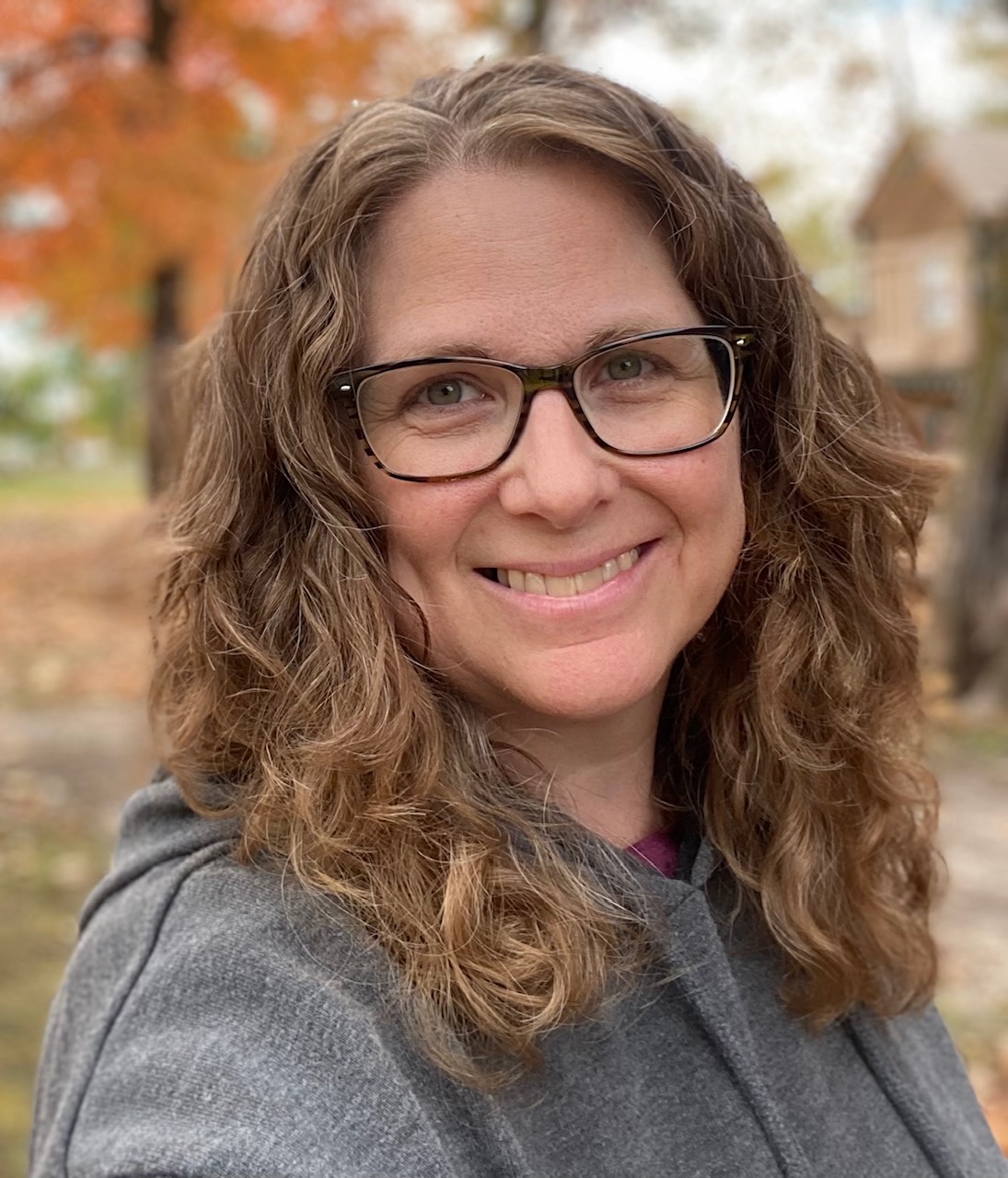
Compassionate Care
Karen traces her nursing aspirations back to some of her earliest memories. “I inherited the gift of compassion from my Mom,” Karen noted. “As a toddler, I would pretend to be a nurse and care for my stuffed animals and also any living creature I found outside that was injured in anyway.”
This type of compassionate care is the driving force behind Karen’s desire to further her education and become an RN.
Alex Kisch
Alex is the Culinary Director at Towerlight Senior Living in St. Louis Park. Alex began working in long-term care just before the COVID-19 pandemic hit. Alex enjoys the unique connections that working with older adults affords him.
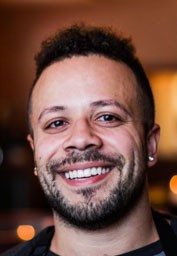
Fulfilling Work
“The fulfillment that I receive from doing this work is amazing,” Alex reflected. He loves not simply cooking for the residents, but getting to know them as individuals – hearing their stories, what they used to cook, and what their favorite pastimes are.
Alex believes that food is more than just sustenance – it has the ability to create connections. A good example of that is one resident who was very picky. This resident’s family members highlighted significant concerns about them getting enough food due to disliking many different things. But Alex was able to help. “As I got to know her and talked about food with her, her mind seemed to open. She was willing to try new things.”
The family was extremely grateful, and they noticed a difference in their loved one’s physical and mental health.
Alex is pursuing a degree that will allow him to become a Certified Dietary Manager, which he hopes to put to use down the road as a Regional Culinary Director.
Bolanle Lipede
Bolanle works as a RN at Benedictine Health System in White Bear Lake. She’s responsible for delivering comprehensive care to older adults in the TCU and long-term care units. Bolanle is pursuing a B.S. in Nursing, which she’d like to put to use in a nurse leadership or advanced practice role in long-term care.
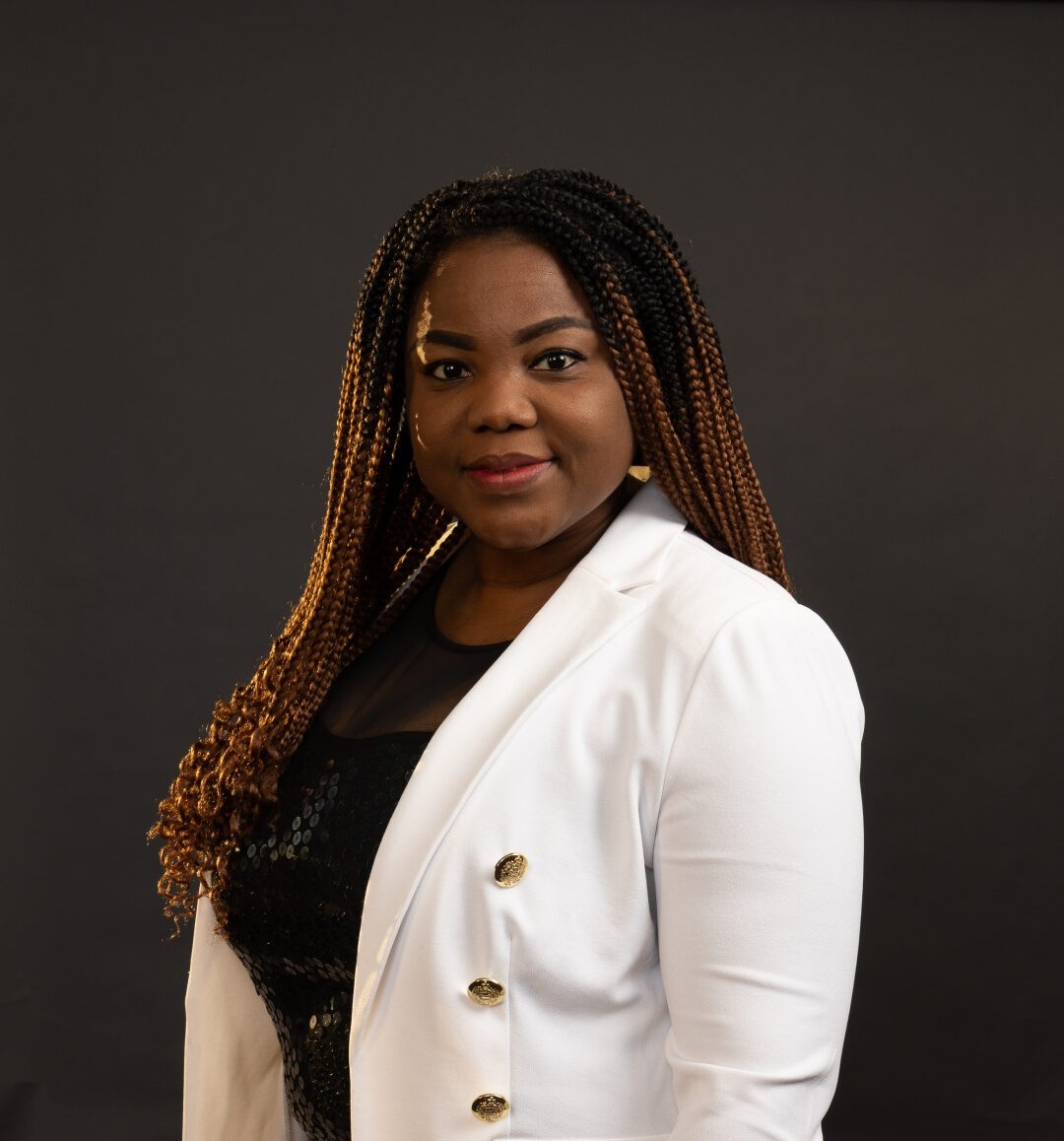
A Calling
Raised in a close-knit African community, Bolanle grew up cherishing the wisdom and stories of elders. She cared for her aunt with dementia, which deepened her commitment to ensuring older adults receive dignity, respect, and compassionate care. Bolanle views this work as a calling—rooted in love, service, and honoring those who came before us.
“One of the most impactful moments in my career was helping a resident transition from hospital recovery back into the nursing home environment following a major stroke. Working closely with physical therapists and speech-language pathologists, I was able to track her progress and adjust her care plan daily to reflect her needs. Over several months, she regained partial mobility and independence, and her gratitude and resilience were a powerful reminder of why I chose this field.”
Hannah Haugen
Hannah is an LPN at Lakeview Methodist Healthcare Center in Fairmont. She is pursuing a degree in nursing to become an RN.
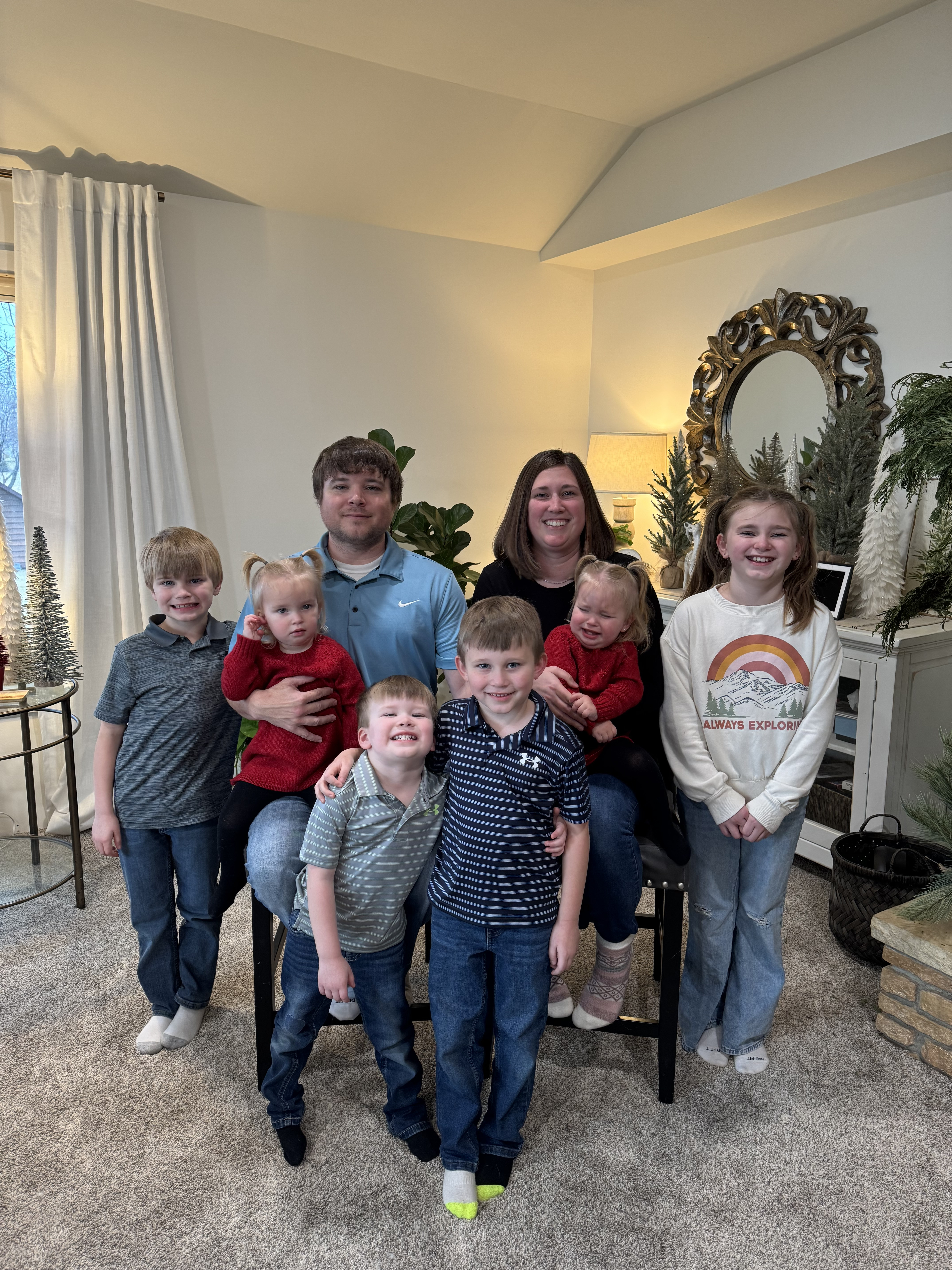
Compassion, Dignity, and Love
Inspired by her mom, a former CNA, Hannah began working in assisted living and quickly fell in love with caring for older adults. Her grandfather’s encouragement led her to nursing school, where she committed to honoring him through her work. Every day, Hannah strives to treat each resident like one of her own grandparents—with compassion, dignity, and love.
Hannah loves the connection that working in long-term care fosters with the wider community. “There are people out in public that stop me when I am in the grocery store or just out in public thanking me for taking such great care of their family members. I love what I do!”
Scholarship Recipients
There are so many excellent scholarship recipients that we get to help support this year – these are just a few of the stories that are worthy of being shared. Below, you can find a full list of our 2025 scholarship recipients:
-
Alex Kisch
-
Alexis M. Polus
-
Ashley Nicholson
-
Azylen Lunak
-
Benjamin Allan Cerney
-
Bolanle Lipede
-
Chrischelle Bjerke
-
Hannah Haugen
-
Jennifer Olmscheid
-
Jesse Nguyen
-
Karen Mitchell
-
Katie Hess
-
Kelly Thibodeau
-
Kimberle K Bergman
-
Kristi Bischoff
-
Letitia Hodge
-
Lora Faber
-
Lorena Jean R. Benavidez
-
Mason Diaz Bandera
-
Prity Rana
-
Selena Bloom
-
Sianee Cole
-
Titus Orenge
The Impact You Help Create
When you support our scholarship program, you’re not just funding education—you’re shaping the future of senior care in Minnesota. You’re equipping dedicated professionals with the skills to deliver exceptional care, create meaningful connections, and ensure that every older adult is treated with the respect and compassion they deserve.
Together, we can turn dreams into reality—and transform the experience of aging for thousands of Minnesotans.
Notable News
Connected Communities Site Visits Spark Momentum Across Minnesota
On August 12, 2025 by Gina DiMaggio
In June, the Connected Communities team hit the road and traveled to Bethesda in Willmar, Guardian Angels in Elk River, and St. John’s in Albert Lea—three of our newest pilot sites working to create stronger systems of support for older adults aging in their homes and communities. These visits were part of our ongoing effort to provide tailored, on-the-ground support to help each community refine and implement their pilot strategies.
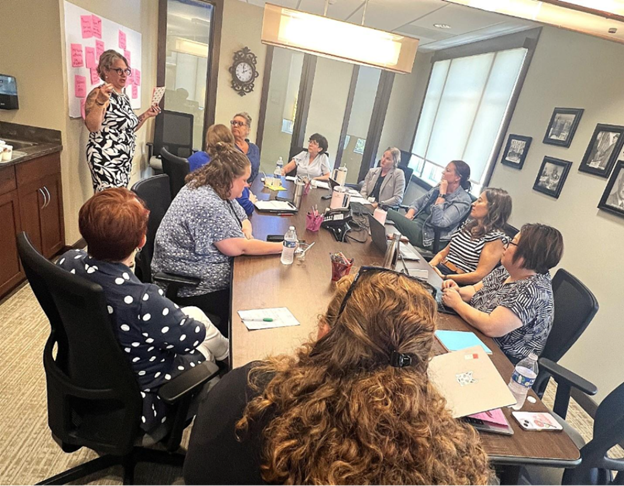
Meaningful Gatherings
Each stop included on-site technical assistance, meetings with cross-sector community partners, and conversations with organizational leaders. The energy and engagement in these gatherings was palpable—partners came ready to share, listen, and co-create.
It was powerful to see what could be accomplished in just a few hours. Working together, each community made measurable progress in clarifying their pilot focus, identifying what their community needs, and building new strategies to carry the work forward.
This work isn’t easy—it’s complex, cross-sector, and at times daunting. These teams are changing systems in their communities, which is no small feat. But even amid the challenges, they are making real, inspiring progress in their first year.
Work Taking Shape
In Albert Lea, pilot partners reflected how this work is starting to take shape and how deeply personal it is. Comments from the three days reflected the vision and hope felt in creating communities that support people across the aging journey.
“We had silos before. And now we are better organized and utilizing everyone better.”
— Bart Berven, Deputy Chief, Albert Lea Fire Department
“I grew up here and I’m excited to grow old here.”
— Lana Howe, Freeborn County Public Health
The Connected Communities initiative is built on the idea that local collaboration can unlock better outcomes for older adults. These visits proved that when communities come together—with the right people, tools, and mindset—positive change can take root. We are honored to support these pilots and look forward to sharing their continued progress.
From Kenya to Minnesota: A Global Pipeline for Compassionate Care
On August 12, 2025 by Anna Mowry
Like many states, Minnesota’s aging services sector is facing a historic challenge: By 2030, more than one in four Minnesotans will be over age 65, and by 2050, the number of residents aged 85-plus will triple. Yet over 12,500 key caregiver positions remain unfilled, according to a 2025 Long-Term Care Imperative survey. This staffing crisis has forced some nursing homes and assisted living communities to close, especially in rural areas.
To help address this need, LeadingAge Minnesota and its provider members are developing a unique international partnership with Kenya to build sustainable pipelines for foreign-born workers. The goal: to strengthen the aged care workforce, enhance global skillsets, and improve care outcomes—both in Minnesota and abroad.
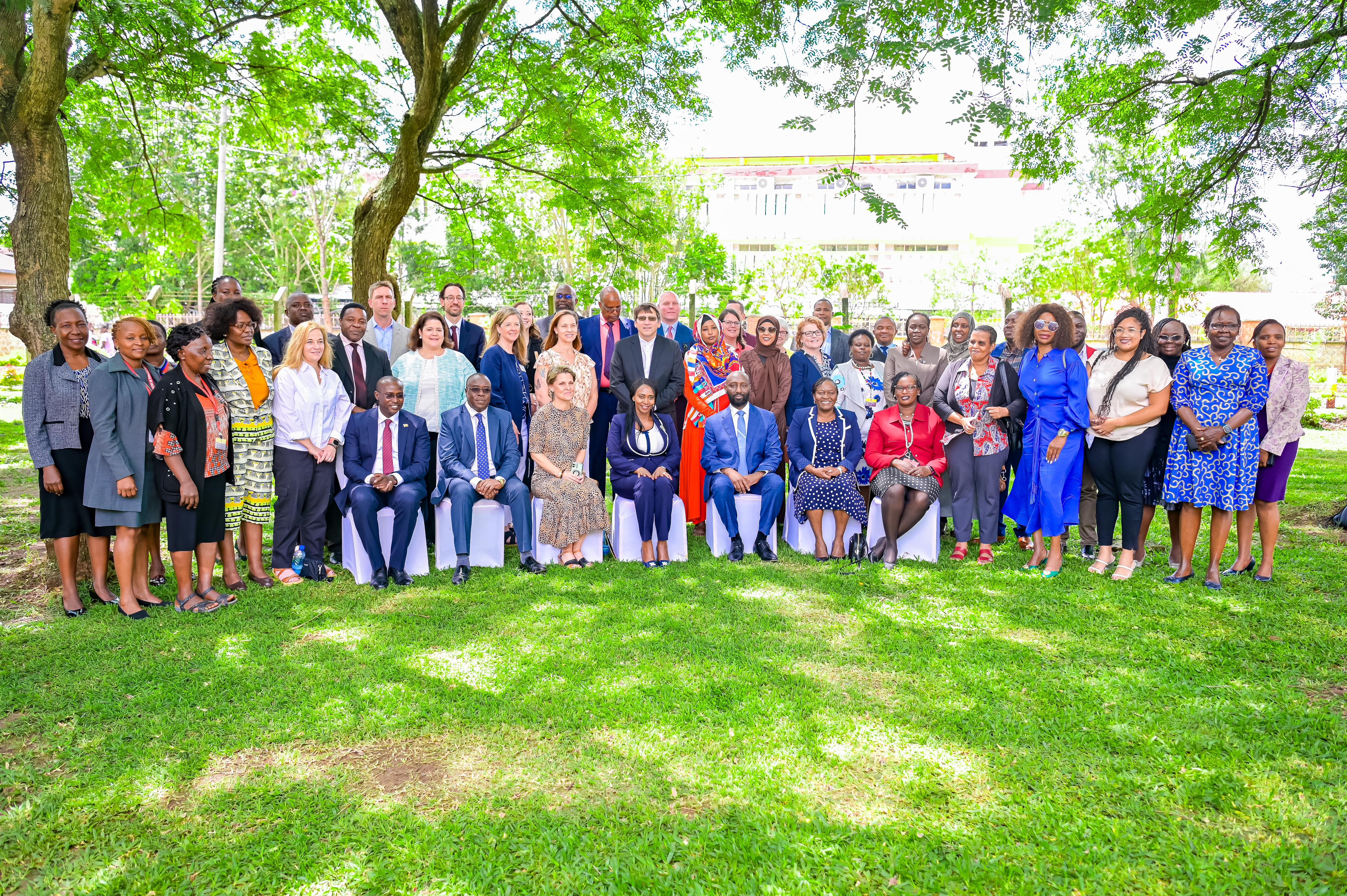
A Partnership Begins: Opening New Pathways in Kenya
In January 2024, a delegation from LeadingAge Minnesota traveled to Nairobi to attend the opening of a new National Council Licensure Examination (NCLEX) training center. Before this Pearson VUE center opened, Kenyan nurses had to travel thousands of miles—to South Africa or even England or India—to take the mandatory exam required to work internationally.
Minnesota State Representative Mohamud Noor, working with Kenya’s State Department of Diaspora Affairs and Pearson VUE, helped make this center a reality. During their visit, the delegation explored Kenya’s health care education system, toured medical and care communities, and met with employment agencies. Kenya, in turn, is eager to support global health care needs, with remittances from its diaspora—much of it from health care workers abroad—accounting for about three percent of the country’s gross domestic product (GDP).
Strengthening Connections & Fostering Mutual Support
Just months after their initial visit to Kenya, LeadingAge Minnesota and Ebenezer Ridges Campus hosted a delegation of Kenyan leaders in Minnesota, including the Honorable Principal Secretary of Kenya’s Diaspora Affairs, Roseline K. Njogu. This visit further deepened ties between Minnesota and Kenya, spotlighting both the growing partnership and the vital contributions of Kenyan professionals already serving in Minnesota’s workforce.
Since that first delegation, several Minnesota providers have made return trips to Nairobi, working with local partners such as Global Care Recruiters to begin the 18-to-24 month process of bringing nurses to the United States on EB-3 visas.
Importantly, this collaboration extends beyond recruitment. Minnesota providers are committed to giving back to the home communities of their future nursing staff—recognizing that truly sustainable partnerships are built on mutual benefit and long-term investment.
Organizations are exploring partnerships with Kenyan churches and mission-driven groups, contributing through donations of medical supplies and textbooks, sponsoring nursing student education, and even exploring opportunities to introduce nursing home care models abroad.
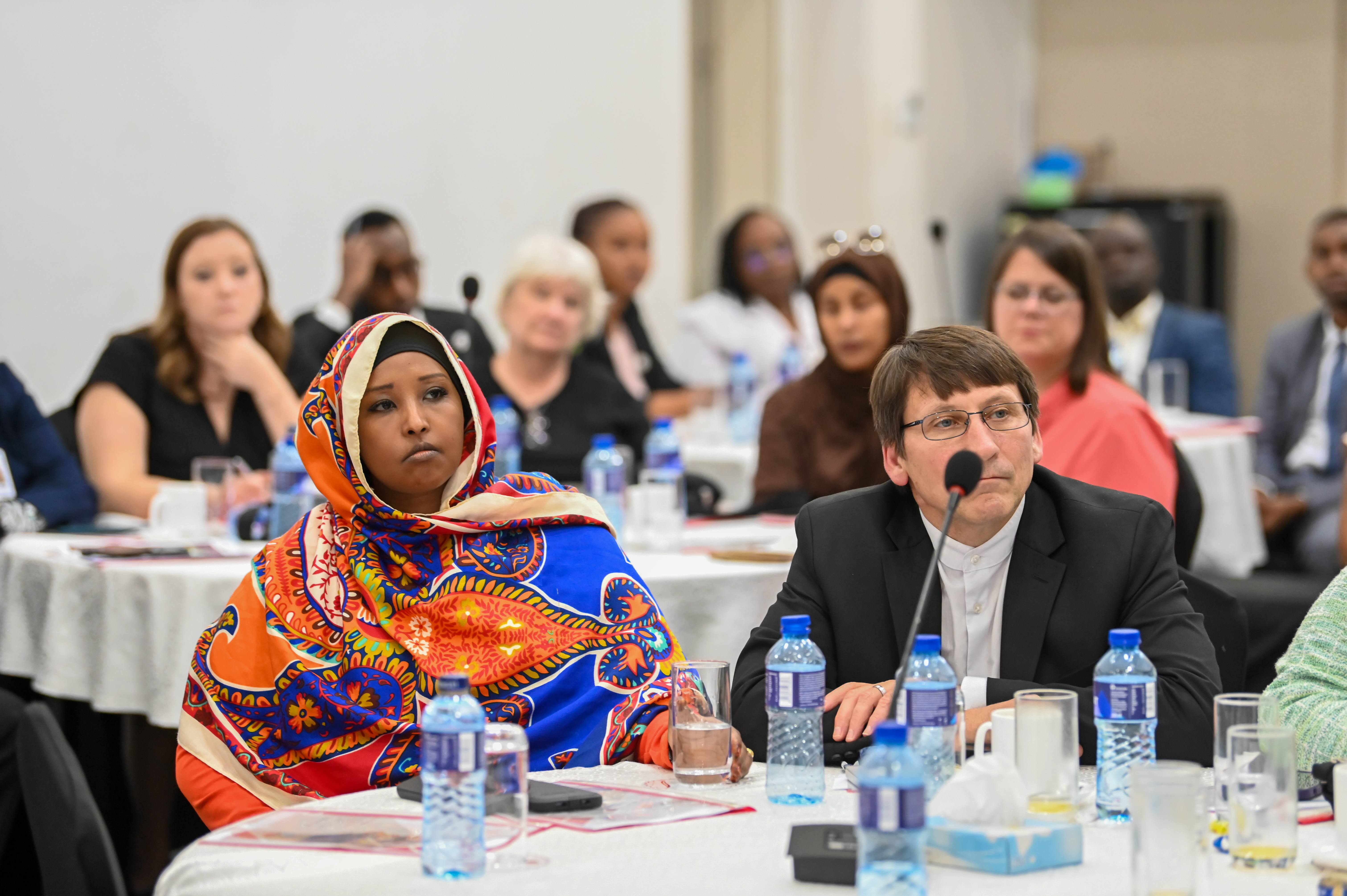
Supporting New Americans at Home
While international recruitment efforts are underway, the LeadingAge Minnesota Foundation is equally focused on supporting the foreign-born workers already making vital contributions to the state’s aged care sector. Recognizing that visa processing can take several months or even years, providers are prioritizing efforts to build organizational capacity and create welcoming environments for both current and future team members.
Minnesota’s aged care workforce is among the state’s most diverse. According to a 2023 Lightcast report, nearly one in three nursing assistants and nearly 14% of all health care workers in Minnesota are immigrants. Notably, Minnesota has one of the largest per-capita Kenyan populations in the United States.
To advance these domestic workforce initiatives, the LeadingAge Minnesota Foundation is investing nearly $1 million in grant funding from the Minnesota Department of Human Services’ Grant, Equity, Access, and Research Division. This investment is designed to strengthen career pathways for new Americans, helping them build meaningful, long-term roles in care for older adults while supporting providers in cultivating inclusive, resilient teams.
Through June 2026, the LeadingAge Minnesota Foundation will develop additional tools and training for both New Americans and employers. The funding will support initiatives like translating its OnTrack nursing assistant curricula into multiple languages, providing real-time translation devices for staff, and connecting New Americans to supportive services. These resources aim to ease integration into Minnesota communities—even during long visa wait periods—by helping newcomers prepare before they arrive.
Providers will also gain access to collaborative learning opportunities that build capacity for recruiting, retaining, and supporting a diverse workforce—fostering more inclusive and welcoming care environments statewide.
Looking Ahead – Related Session at LeadingAge Annual Meeting & Global Ageing Network Summit in November
For Minnesota, partnerships like this one with Kenya offer a model for building global workforce pipelines that meet local needs while respecting and supporting the aspirations of international caregivers.
To learn more about this collaboration, attend the International Perspectives: Creating Pipelines for Foreign-Born Workers” session at the 2025 LeadingAge Annual Meeting and Global Ageing Network Summit in Boston this November. The session will take place on Sunday, November 2 at 2:45 p.m.
Safe Lifting in Long-Term Care: A Human-Centered Approach to Preventing Harm
On August 12, 2025 by Julie Apold
Mechanical lifts are essential tools in many nursing homes, helping caregivers safely transfer residents with limited mobility. Yet, when these devices are not used correctly or when processes break down, they can lead to serious harm—for both residents and staff. That’s why the LeadingAge Minnesota Foundation launched the mechanical lift project—a safety initiative that goes beyond traditional staff training to tackle the root causes of lift-related incidents.
What sets this project apart is its use of human factors and ergonomics science, which focuses on how people interact with equipment and processes. Rather than placing blame on individuals, the project investigates how the design of the lift equipment, workflow, and environment can be improved to make safe practices easier and more reliable.
Listening to Those Closest to the Work
In the project’s first phase, the team partnered with the people most involved in lift transfers—nursing assistants, therapy and maintenance staff, nurse managers, quality and staff development leads—as well as residents who use lifts and their families. Through on-site observations and interviews, rich insights were gathered into the day-to-day challenges and risks of mechanical lift use.
These findings were shared with a Mechanical Lift Advisory Group made up of care providers and local and national safety experts. Together, they developed a practical guide called the “Roadmap to Effective Mechanical Lift Safety Practices” to support providers in creating a safer, more respectful lift experience for all.

Introducing: The Safe Lift Initiative
The Roadmap is the foundation of a broader safety campaign called “Safe Lift”, anchored by the message: “We Lift with Care; Because We Care.” The initiative emphasizes dignity, respect, and inclusion of the resident during every lift transfer—alongside a strong focus on safety.
Key Safe Lift practices include:
- Appointing a Safe Lift Champion at each site to lead implementation
- Conducting Safe Lift rounding—regular check-ins that include observation and open dialogue with staff and residents
- Establishing clear roles and routines for managing both internal and external lift slings
- Reinforcing a “Hands-On for Safety” expectation during transfers
A major concern voiced by staff and residents was the pressure to rush lift transfers due to time constraints. To address this, the team developed a standardized safety pause called “Safe Lift: STOP for Safety”. This brief pause includes three simple steps to confirm that equipment, environment, and team members are ready—ensuring everyone is prepared for a safe transfer.
Looking Ahead
The Safe Lift campaign is now being rolled out across LeadingAge Minnesota member sites. It represents a culture shift: from reactive training to proactive system design, from doing for residents to working with them.
By bringing human-centered design into everyday care, the Safe Lift initiative will help make mechanical lift transfers safer, more respectful, and more effective—for everyone involved.
Personalized Medicine Comes to Long-Term Care: Our Pharmacogenomics Pilot Takes Off
On August 12, 2025 by Kari Everson
At LeadingAge Minnesota, we're always seeking innovative ways to help older adults thrive as they age. One exciting initiative now underway is our Pharmacogenomics (PGx) Pilot Program, which brings the power of personalized medicine to long-term care.
What Is Pharmacogenomics?
Pharmacogenomics (PGx) is the study of how a person’s genes affect their body’s response to medications. Because everyone’s genetic makeup is different, some medications may work better or worse for certain people. By using PGx testing, health care providers can better match medications to each resident’s unique genetic profile. This means fewer side effects, improved symptom control, and overall better care.

Why It Matters in Long-Term Care
In nursing homes and assisted living communities, many residents take multiple medications, this is known as polypharmacy. PGx testing has the potential to reduce medication-related problems such as dizziness, confusion, falls, or unwanted drug interactions. It can also help caregivers avoid medications that may not work well for an individual resident and find better alternatives more quickly.
About the Pilot
Our PGx Pilot Program is being rolled out across eight locations in Minnesota, including both nursing homes and assisted living settings. These pilot sites were carefully selected and represent a diverse group of organizations committed to advancing care through innovation. Testing is simple and non-invasive—it involves a quick cheek swab collected by trained staff.
What We’re Measuring
We’re tracking several important outcomes to see how PGx testing makes a difference. These include:
- Changes in medication regimens following PGx testing
- Reduction in use of high-risk medications, like antipsychotics or sedatives
- Fewer adverse drug events, such as falls or confusion
- Improved mood, behavior, pain control, and overall health
We’re also looking at the possibility of integrating PGx testing into everyday workflows and how residents, families, and staff feel about the experience.
What’s Next
The kick-off meeting and staff training will wrap up by the end of September. Beginning in October, residents will start receiving PGx testing and personalized medication reviews. We’ll be collecting data and checking in on progress throughout the year, with a full evaluation planned for summer 2026. We’d like to give our sincere thanks to Health Partners for the seed funding for this project.
Looking Ahead
We believe this project could be a game-changer for how medications are managed in long-term care. By helping clinicians choose the right medication, at the right dose, for the right person, PGx testing offers a smarter, safer, more personalized path to well-being.
Stay tuned for updates as we move through the next phase of this exciting journey. Together, we’re aging forward—with science, compassion, and innovation leading the way.
Golf, Sunshine & Support for Caregivers
On August 12, 2025 by Ben Hansen
Last week, on Aug. 5, 2025, the LeadingAge Minnesota Foundation hosted its annual Golf Tournament at Prestwick Golf Club in Woodbury — and it was a hole-in-one for our mission! This sold out event was a huge success. Thanks to the generosity of golfers, business partners, volunteers, and ticket purchasers, the event raised over $122,000 before expenses to fund caregiver scholarships. These funds will be used to fund 2026 caregiver scholarships like the ones you can read about above.
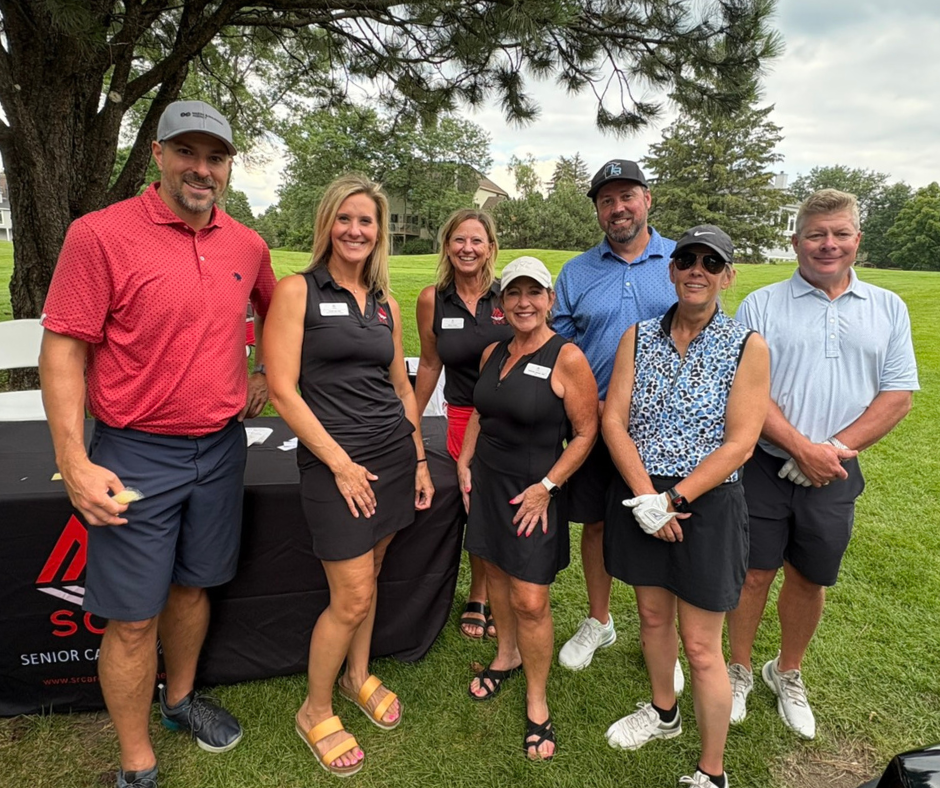
Perfect Summer Day for Golf
It was a perfect summer day filled with great shots, friendly competition, and a shared commitment to supporting those who care for Minnesota’s older adults. These funds will help more caregivers access education and training, strengthening our workforce and the quality of care across the state.
Thank you to everyone who made this day possible — we couldn’t do it without you!
It’s not too late to make a difference — your gift today will help more caregivers receive the training and education they need to provide exceptional care for Minnesota’s older adults. Donate to the Caregiver Scholarship Fund.

Building Bridges: A Resource Map for New Americans and Long-Term Care
On August 12, 2025 by Kirstan Ketter
Across Minnesota, New Americans are an essential part of our communities and our long-term care workforce. Nearly one in three healthcare workers in our state is an immigrant, bringing dedication, talent, and important contributions to the care of older adults.
Interactive Map
In May, our Foundation launched an interactive online map designed to connect immigrant and refugee communities with the resources they need to thrive. The New American Map of Resources brings together more than 200 organizations, nonprofits, businesses, and agencies across Minnesota—ranging from language programs and legal services to childcare resources, cultural centers, and workforce programs—all in one easy-to-use tool.
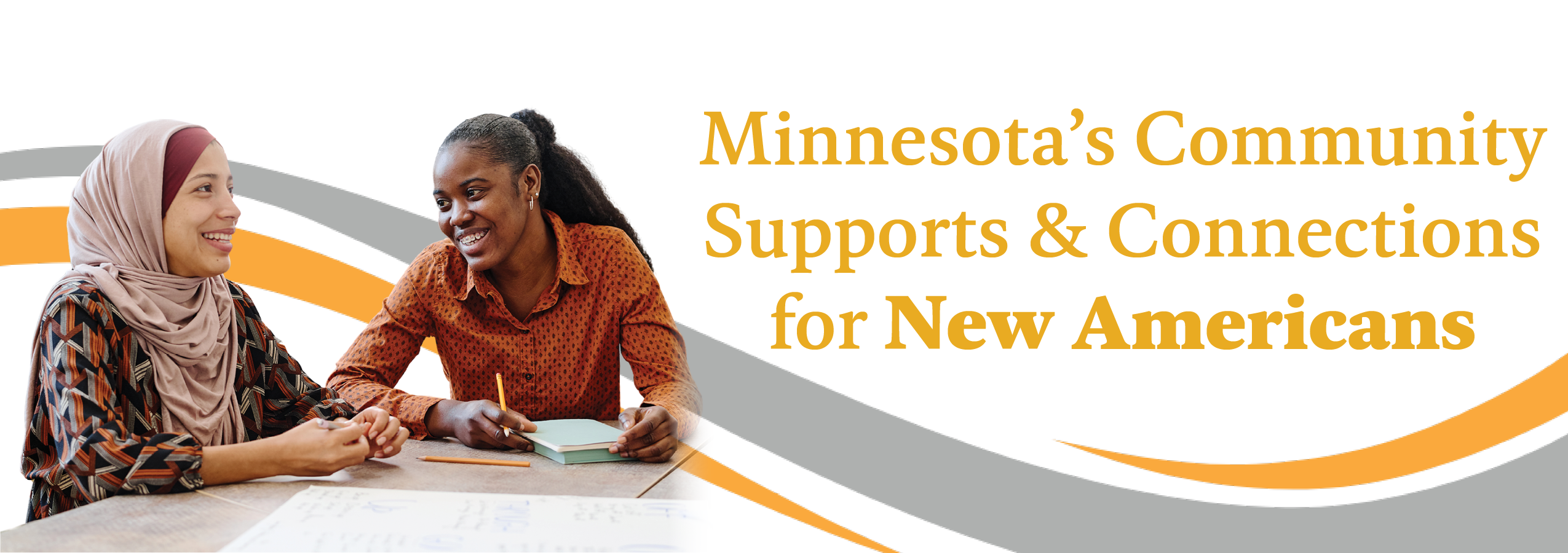
For New Americans and their families, the map offers a trusted way to find support for legal needs, English language learning, housing, culturally specific support, and career pathways. A simple search by zip code helps users see what’s available in their own neighborhoods or anywhere across the state.
A Needed Resource
Since its launch in May 2025, the map has already been viewed more than 1,200 times; a sign of the growing need for and interest in these resources
For long-term care employers, the map is a way to build stronger connections with local communities. Employers can refer staff to culturally relevant resources, explore partnerships with community organizations, and strengthen the pipelines that bring new talent into aging services.
This isn’t just a directory—it’s a bridge. A bridge between people and programs, and between long-term care sites and their communities. If you know of a program, business, or organization that belongs on this map, please reach out to Kirstan Ketter with the name, zip code, phone number, website, and email if possible.
This work is made possible through the New Americans Long-Term Care Workforce grant from the Minnesota Department of Human Services.
In the News: Connected Communities in Action
On August 12, 2025 by Ben Hansen
Our Connected Communities sites are changing lives—and making headlines in the process. Across Minnesota, local partners are building stronger, more supportive environments for older adults. Here’s how two of our pilot sites are gaining attention for their innovation and impact.
Perham: Building Belonging through Memory Care
A heartwarming local news segment showcases Elevate’s new Memory Café, part of Perham’s Connected Community initiative. This space is creating meaningful moments and connections for people living with memory loss and their care partners. It’s a beautiful example of community care in action.
Freeborn County: Leading with Technology and Collaboration
Consumer Products World article
Freeborn County’s Connected Community initiative is gaining momentum — and media coverage — for its use of smart technology and cross-sector partnerships to support older adults at home. These two articles highlight how use of Remote Patient Monitoring (RPM) technology and local leadership are making aging in place safer, smarter, and more compassionate.
